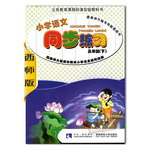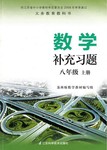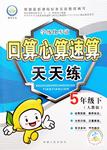
 同步练习河南大学出版社系列答案
同步练习河南大学出版社系列答案 同步练习西南师范大学出版社系列答案
同步练习西南师范大学出版社系列答案 补充习题江苏系列答案
补充习题江苏系列答案 学练快车道口算心算速算天天练系列答案
学练快车道口算心算速算天天练系列答案科目:高中英语 来源:2013届湖北省荆门市高三元月调考英语试卷(带解析) 题型:阅读理解
Taiwanese fishing boats that sailed to the Diaoyu Islands to protest Japan's "purchase" of part of the islands completed their voyage Tuesday morning and have set sail for home.
Local media reported that the boats finished their protest at 9:15 a.m. and are expected to return to a port in northeast Taiwan's Yilan county at noon Wednesday.
Although the boats originally numbered 75,they were joined at sea by other boats from different parts of Taiwan, raising the total number to about 100 vessels. Organizers said the voyage was made to protect Taiwanese fishing rights in nearby waters and to protest Japan's "purchase" of part of the Diaoyu Islands.
The Japanese government announced a plan to "purchase" part of the islands earlier this month despite repeated protests from the Chinese government. The action aroused demonstrations across China as well as consumers' boycott of Japanese products in recent weeks. Local authorities in Taiwan have also protested the move.
"Japan's purchase and nationalization of China's Diaoyu Islands are putting China-Japan economic and trade ties at risk due to man-made factors." An official spokesman from Beijing warned .
China-Japan economic and trade relations was back on track in 1952 when the two countries signed their first non-governmental trade agreement. Currently, China has been Japan's largest trade partner since 2007 while Japan is China’s fourth largest trade partner, after the EU, U.S. and the ASEAN. Meanwhile, China is the biggest destination for Japanese exports and biggest source of imports. In the first half of 2012, Japan's exports to China totaled 73.54 billion U.S. dollars, down 6.2 percent from the same period last year, while its import from China was 91.29 billion U.S. dollars, up 7 percent from the same period last year.
Now, China-Japan economic and trade relations are at a crossroads. Negotiation could be the way out of the rift.
【小题1】Why are China-Japan economic and trade relations at a crossroads?
| A.Because Taiwan fishing boats sailed to the island to protest Japan. |
| B.Because Taiwanese are deprived of their fishing right. |
| C.Because Japan is not China's largest trade partner. |
| D.Because Japan announced to purchase China's Diaoyu Islands. |
| A.About 100 boats joined the original team later. |
| B.Negotiation will bring both countries out of the conflict. |
| C.Japan's “purchase”has cast a shadow on China-Japan export and import. |
| D.Japan's exports to China totaled 78 billion U.S. dollars in 2011. |
| A.gap | B.conflict | C.crash | D.quarrel |
| A.Japan declared to purchase China's Diaoyu Islands. |
| B.Japan's purchase of Diaoyu Islands aroused nationwide protest. |
| C.The Diaoyu Islands belong to China! |
| D.China plays an important part in Japan's economy development. |
查看答案和解析>>
科目:高中英语 来源:2012届安徽省皖南八校高三第一次联考英语卷(解析版) 题型:阅读理解
Nuclear weapons(核武器)were first developed in the United States during the Second World War to be used against Germany.However, by the time the first bombs were ready for use, the war with Germany had ended and, as a result, the decision was made to use the weapons against Japan instead.Hiroshima and Nagasaki have suffered the consequences of the decision to the present day.
The real reasons why bombs were dropped on two heavily populated cities are not altogether clear.A number of people in 1944 and early 1945 argued that the use of nuclear weapons would be unnecessary, since American Intelligence was aware that some of the most powerful and influential people in Japan had already realised that the war was lost, and wanted to discuss a Japanese surrender (投降).It was also argued that, since Japan has few natural resources, a blockade (封锁) by the American navy would force it to surrender within a few Weeks, and the use of nuclear weapons would prove unnecessary.If a demonstration of force was required to end the war, a bomb could be dropped over an unpopulated area like a desert, in front of Japanese observers, or over an area of low population inside Japan, such as a forest.Choosing this course of action might decrease the loss of further lives on all sides, while the power of nuclear weapons would still be adequately demonstrated(展示).
All of these arguments were turned down, however, and the general agreement was that the quickest way to end the fighting would be to use nuclear weapons against the centres of population inside Japan.In fact, two of the more likely reasons why the decision was reached seem quite shocking to us now.
【小题1】The meaning of the underlined sentence in Paragraph 1 is that .
| A.the two cities were badly damaged after they were bombed |
| B.the two cities suffered because Japan would not agree to end the war |
| C.the terrible effects of dropping nuclear weapons on these cities can still be felt |
| D.the end of the war with Germany meant Hiroshima and Nagasaki, would suffer |
| A.Japan had to import most of its natural resources |
| B.Japan would not be powerful enough to beat a blockade |
| C.an attack would probably destroy Japanese resources within a few weeks |
| D.the Americans could defeat Japan's navy since it was short of resources |
| A.the writer probably expects us hot to argue with his opinion |
| B.the nuclear bombs must have been dropped on Tokyo, too |
| C.the real reasons for' the decision may never have been made clear |
| D.the writer has not done much research on this subject to establish the facts |
| A.The reasons why Japan chose to surrender. |
| B.The writer's attitudes towards the Japan's surrender. |
| C.People's different opinions about dropping nuclear weapons onto the cities. |
| D.Some of the possible reasons for dropping nuclear weapons onto the cities. |
查看答案和解析>>
科目:高中英语 来源:2012-2013学年湖北省荆门市高三元月调考英语试卷(解析版) 题型:阅读理解
Taiwanese fishing boats that sailed to the Diaoyu Islands to protest Japan's "purchase" of part of the islands completed their voyage Tuesday morning and have set sail for home.
Local media reported that the boats finished their protest at 9:15 a.m. and are expected to return to a port in northeast Taiwan's Yilan county at noon Wednesday.
Although the boats originally numbered 75,they were joined at sea by other boats from different parts of Taiwan, raising the total number to about 100 vessels. Organizers said the voyage was made to protect Taiwanese fishing rights in nearby waters and to protest Japan's "purchase" of part of the Diaoyu Islands.
The Japanese government announced a plan to "purchase" part of the islands earlier this month despite repeated protests from the Chinese government. The action aroused demonstrations across China as well as consumers' boycott of Japanese products in recent weeks. Local authorities in Taiwan have also protested the move.
"Japan's purchase and nationalization of China's Diaoyu Islands are putting China-Japan economic and trade ties at risk due to man-made factors." An official spokesman from Beijing warned .
China-Japan economic and trade relations was back on track in 1952 when the two countries signed their first non-governmental trade agreement. Currently, China has been Japan's largest trade partner since 2007 while Japan is China’s fourth largest trade partner, after the EU, U.S. and the ASEAN. Meanwhile, China is the biggest destination for Japanese exports and biggest source of imports. In the first half of 2012, Japan's exports to China totaled 73.54 billion U.S. dollars, down 6.2 percent from the same period last year, while its import from China was 91.29 billion U.S. dollars, up 7 percent from the same period last year.
Now, China-Japan economic and trade relations are at a crossroads. Negotiation could be the way out of the rift.
1.Why are China-Japan economic and trade relations at a crossroads?
A.Because Taiwan fishing boats sailed to the island to protest Japan.
B.Because Taiwanese are deprived of their fishing right.
C.Because Japan is not China's largest trade partner.
D.Because Japan announced to purchase China's Diaoyu Islands.
2.We can infer from the passage that _____.
A.About 100 boats joined the original team later.
B.Negotiation will bring both countries out of the conflict.
C.Japan's “purchase”has cast a shadow on China-Japan export and import.
D.Japan's exports to China totaled 78 billion U.S. dollars in 2011.
3.What does the underlined word “rift” in the last paragraph mean?
A.gap B.conflict C.crash D.quarrel
4.What is the main idea of this passage?
A.Japan declared to purchase China's Diaoyu Islands.
B.Japan's purchase of Diaoyu Islands aroused nationwide protest.
C.The Diaoyu Islands belong to China!
D.China plays an important part in Japan's economy development.
查看答案和解析>>
科目:高中英语 来源:2011-2012学年安徽省皖南八校高三第一次联考英语题(解析版) 题型:阅读理解
Nuclear weapons(核武器)were first developed in the United States during the Second World War to be used against Germany.However, by the time the first bombs were ready for use, the war with Germany had ended and, as a result, the decision was made to use the weapons against Japan instead.Hiroshima and Nagasaki have suffered the consequences of the decision to the present day.
The real reasons why bombs were dropped on two heavily populated cities are not altogether clear.A number of people in 1944 and early 1945 argued that the use of nuclear weapons would be unnecessary, since American Intelligence was aware that some of the most powerful and influential people in Japan had already realised that the war was lost, and wanted to discuss a Japanese surrender (投降).It was also argued that, since Japan has few natural resources, a blockade (封锁) by the American navy would force it to surrender within a few Weeks, and the use of nuclear weapons would prove unnecessary.If a demonstration of force was required to end the war, a bomb could be dropped over an unpopulated area like a desert, in front of Japanese observers, or over an area of low population inside Japan, such as a forest.Choosing this course of action might decrease the loss of further lives on all sides, while the power of nuclear weapons would still be adequately demonstrated(展示).
All of these arguments were turned down, however, and the general agreement was that the quickest way to end the fighting would be to use nuclear weapons against the centres of population inside Japan.In fact, two of the more likely reasons why the decision was reached seem quite shocking to us now.
1.The meaning of the underlined sentence in Paragraph 1 is that .
|
A.the two cities were badly damaged after they were bombed |
|
B.the two cities suffered because Japan would not agree to end the war |
|
C.the terrible effects of dropping nuclear weapons on these cities can still be felt |
|
D.the end of the war with Germany meant Hiroshima and Nagasaki, would suffer |
2.According to Paragraph 2, a blockade would have been successful because
|
A.Japan had to import most of its natural resources |
|
B.Japan would not be powerful enough to beat a blockade |
|
C.an attack would probably destroy Japanese resources within a few weeks |
|
D.the Americans could defeat Japan's navy since it was short of resources |
3.The last paragraph tells that .
|
A.the writer probably expects us hot to argue with his opinion |
|
B.the nuclear bombs must have been dropped on Tokyo, too |
|
C.the real reasons for' the decision may never have been made clear |
|
D.the writer has not done much research on this subject to establish the facts |
4.What would probably be discussed in the paragraphs that follow?
|
A.The reasons why Japan chose to surrender. |
|
B.The writer's attitudes towards the Japan's surrender. |
|
C.People's different opinions about dropping nuclear weapons onto the cities. |
|
D.Some of the possible reasons for dropping nuclear weapons onto the cities. |
查看答案和解析>>
科目:高中英语 来源: 题型:阅读理解
Nuclear weapons(核武器)were first developed in the United States during the Second World War to be used against Germany.However, by the time the first bombs were ready for use, the war with Germany had ended and, as a result, the decision was made to use the weapons against Japan instead. Hiroshima and Nagasaki have suffered the consequences of the decision to the present day.
The real reasons why bombs were dropped on two heavily populated cities are not altogether clear. number of people in 1944 and early 1945 argued that the use of nuclear weapons would be A unnecessary, since American Intelligence was aware that some of the most powerful and influential people in Japan had already realised that the war was lost, and wanted to discuss a Japanese surrender (投降) It was also argued that, since Japan has few natural resources, a blockade (封锁) by the American navy would force it to surrender within a few Weeks, and the use of nuclear weapons would prove unnecessary.If a demonstration of force was required to end the war, a bomb could be dropped over an unpopulated area like a desert, in front of Japanese observers, or over an area of low population inside Japan, such as a forest.Choosing this course of action might decrease the loss of further lives on all sides, while the power of nuclear weapons would still be adequately demonstrated(展示) .
All of these arguments were turned down, however, and the general agreement was that the quickest way to end the fighting would be to use nuclear weapons against the centres of population inside Japan.In fact, two of the more likely reasons why the decision was reached seem quite shocking to us now. .
68.The meaning of the underlined sentence in Paragraph 1 is that
A.the two cities were badly damaged after they were bombed
B.the two cities suffered because Japan would not agree to end the war
C.the terrible effects of dropping nuclear weapons on these cities can still be felt
D.the end of the war with Germany meant Hiroshima and Nagasaki, would suffer
69.According to Paragraph 2, a blockade would have been successful because
A.Japan had to import most of its natural resources
B.Japan would not be powerful enough to beat a blockade
C.an attack would probably destroy Japanese resources within a few weeks
D.the Americans could defeat Japan's navy since it was short of resources
70.The last paragraph tells that .
A.the writer probably expects us hot to argue with his opinion
B.the nuclear bombs must have been dropped on Tokyo, too
C.the real reasons for' the decision may never have been made clear
D.the writer has not done much research on this subject to establish the facts
71.What would probably be discussed in the paragraphs that follow?
A.The reasons why Japan chose to surrender.
B.The writer's attitudes towards the Japan's surrender.
C.People's different opinions about dropping nuclear weapons onto the cities.
D.Some of the possible reasons for dropping nuclear weapons onto the cities.
查看答案和解析>>
湖北省互联网违法和不良信息举报平台 | 网上有害信息举报专区 | 电信诈骗举报专区 | 涉历史虚无主义有害信息举报专区 | 涉企侵权举报专区
违法和不良信息举报电话:027-86699610 举报邮箱:58377363@163.com